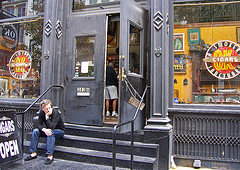
Though there are countless choices for excellent cigars, there is no doubt that when the Cuban cigar is mentioned, the heart of cigar lovers suddenly starts beating much faster. Yet the fact is that Cuban cigars are illegal in the United States. Do you know how this came to be?
Older cigar smokers may be familiar with the story behind the embargo but for the younger ones, here is a bit of history (thanks to About.com):
Way back in February of 1962, President John F. Kennedy established a trade embargo against Cuba to sanction Fidel Castro’s communist regime, which seized control of the island in 1959, and then began to confiscate private property and other assets (including cigar companies).
Castro continued to be a thorn in the side of the United States. In October of 1962, during the height of the Cold War, he permitted the Soviets to construct missile bases on the island capable of striking the Untied States. The U.S. responded with a blockade of Cuba to prevent Soviet ships from delivering the materials to complete the project (not to be confused with the Cuban Trade Embargo, which started in February 1962).
As long as Fidel Castro still lives and Cuba’s government is still communist, the Cuban Trade Embargo is expected to remain in effect, despite efforts by some who are trying to build support for lifting the ban. In fact, the embargo was made even more restrictive in 2004. United States citizens cannot legally acquire or consume Cuban cigars, even while traveling abroad. This may be a law that is impractical to enforce, but it is still the law. There are substantial fines and penalties for violators, who are at a higher risk of being nabbed if they attempt to bring Cuban products (especially in large quantities) into the United States.
As you can see, this is not a question of quality or safety but of politics. As the French say, c’est la vie!
Originally posted on May 15, 2008 @ 5:15 pm

